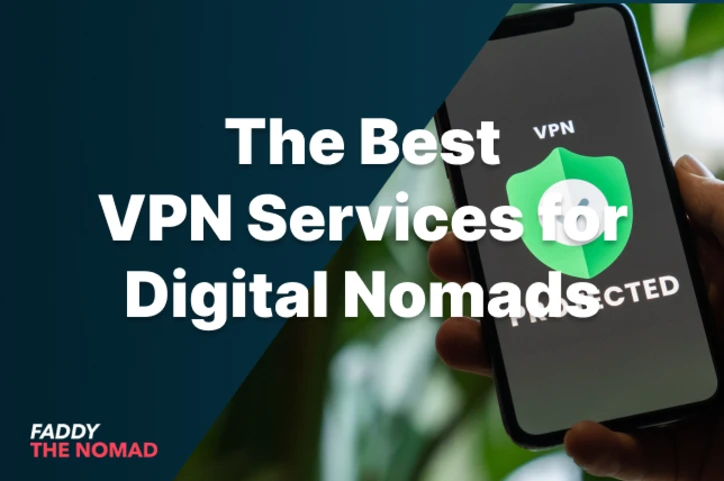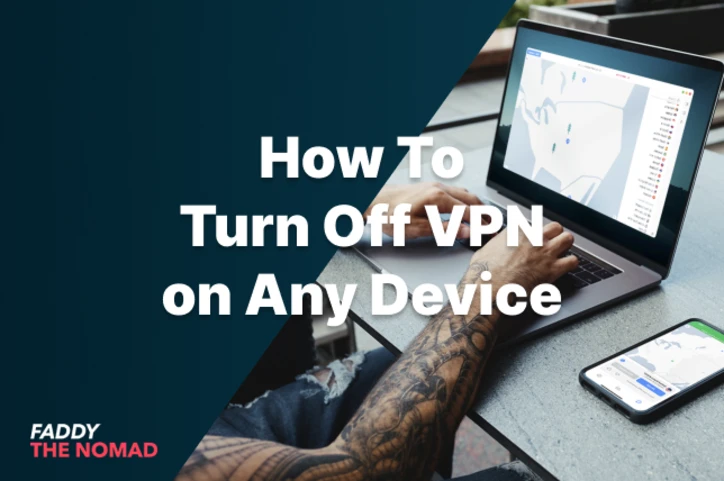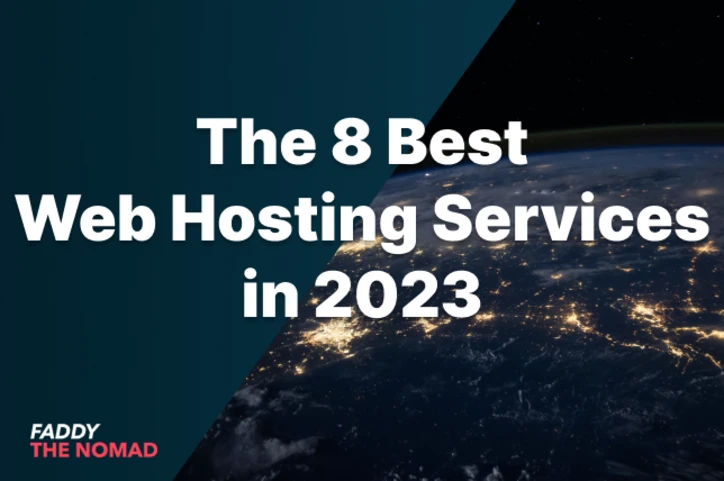What is a VPN and How Does It Work?


Today it seems everyone everyone is promoting VPN services. If you value your money, your passwords, and your privacy, you should too. In this guide, I will tell you exactly what a VPN is and how it works. From the nitty-gritty of how a VPN works to choosing the perfect one for you, get ready for a deep dive into the world of VPNs.
What is a VPN?
A VPN, or Virtual Private Network, is a service that encrypts your internet connection and routes it through a server in a location of your choice. This provides enhanced security, privacy, and can also allow you to access content that may be restricted in your geographical area.
What is a VPN explanation video
Origin and Purpose of VPNs
VPNs, or Virtual Private Networks, trace their origins back to the corporate world where businesses sought ways to securely connect remote users to company resources. Initially, the goal was to create secure tunnels for data transfer.
However, as the internet grew, so did the threats associated with it. This necessitated a tool that would not only ensure safe data transfer but also provide online anonymity. That's when VPNs entered the mainstream digital landscape, evolving beyond corporate confines.
Nowadays, understanding what a VPN goes beyond just the corporate use-case. They're tools that every internet user should consider due to the multifaceted benefits they offer.
Core Functionality of a VPN
A VPN operates by routing a user's internet connection through a chosen server in a remote location. This masks the user's actual IP address and replaces it with one from the server's location. This serves a dual purpose: it hides the user's identity and also makes it seem as if they're accessing the internet from a different place.
Another critical aspect of how a VPN works is that all the data sent or received while connected to a VPN is encrypted. This ensures that even if someone manages to intercept this data, they won't be able to understand or use it.
- VPN hides your IP address
- VPN encrypts your data transfer
- VPN can bypass geo-restrictions
These core functionalities make VPNs indispensable tools for those valuing their digital privacy and security.
Common Scenarios for Using a VPN
VPNs can be useful in a variety of scenarios. Travelers, for instance, often use VPNs to access content that might be restricted in certain countries. Journalists might rely on them to communicate securely, ensuring their sources and information remain confidential.
Moreover, everyday internet users also find value in VPNs. Whether it's to protect against snooping on public Wi-Fi networks, prevent websites from tracking them, or just to ensure their ISP isn't monitoring their activities, VPNs play a pivotal role.
The versatility of VPNs and the protection they provide can't be overstated. Whether you're a corporate professional, a journalist, or just someone browsing the internet, there's always a case to be made for using a VPN.
Why we need a VPN
Simply put: You need VPN for online anonymity and security, wherever you are in the world.
Using VPN in restrictive regions video
Protection on Unsecured Networks
Public Wi-Fi networks, like those in cafes or airports, are often unsecured. This leaves users vulnerable to malicious attacks or snooping. A VPN offers a layer of protection by encrypting data, ensuring that information remains private even on open networks.
When connected to a VPN, even if a hacker intercepts the data, they won't be able to decipher it due to the encryption in place.
This is crucial for those who frequently use public networks and value the integrity of their personal and professional data.
An example of a category of people who frequently use public networks are digital nomads.
It's especially useful to learn why it's important for digital nomads and remote workers to use VPN.
Preserving Online Anonymity
In today's digital age, online privacy has become a significant concern. Websites and advertisers use tracking methods to monitor user activities, gather data, and build profiles. This can be invasive and uncomfortable for many users.
- VPNs mask the user's actual IP address
- They prevent websites from directly tracking user behavior
- They enable anonymous browsing, safeguarding user identity
By routing data through a remote server, VPNs ensure that one's online actions are almost impossible to trace back, granting users an added layer of anonymity.
Accessing Geo-Restricted Content
Many services and platforms restrict content based on geographical locations due to licensing agreements or other regulations. A classic example is streaming services that offer different libraries in different countries.
With a VPN, users can virtually position themselves in a different country, bypassing these geo-restrictions. So, if a particular show or website isn't available in one's home country, using a VPN can provide access.
How does a VPN work in this context? It tricks the platform into believing the user is accessing from a permitted region, thereby unlocking the content.
The Technical Mechanics Behind VPNs
Understanding the VPN Tunnel
At the heart of a VPNs operation is the concept of a "VPN tunnel". This tunnel acts as a secure passage for data to travel between the user's device and the VPN server. Just as a physical tunnel shields you from external elements, a VPN tunnel protects your data from external threats.
Any data sent through this tunnel gets encrypted at one end and decrypted at the other, ensuring security during its transit.
Tunneling also prevents external entities, like ISPs or hackers, from seeing the actual content of the data packets, even if they intercept them.
Data Packet Transmission and Routing
When connected to a VPN, the data sent or received gets split into packets. These packets travel through the VPN tunnel to reach their destination. On reaching the VPN server, they're re-routed to their final online destination.
- Packets get assigned a new IP address by the VPN server
- This new IP is what online services see, masking the user's actual IP
- On the return journey, the process is reversed, with the VPN server sending the packets back to the user's device
This packet transmission and routing is a continuous process that happens behind the scenes, ensuring that the user's online experience remains seamless.
Integrity Checks and Data Authentication
VPNs employ integrity checks to ensure that data packets remain unchanged during transit. This verifies that the received packet is indeed the one that was sent, without any alterations.
How does a VPN work to ensure data integrity? It uses authentication headers and checksums. If any discrepancy is found between the sent and received data, the packet is discarded, and the sender is notified.
These checks, combined with encryption, provide a robust shield against data tampering and eavesdropping, ensuring both privacy and data integrity.
Dangers of not using a VPN

Exposure on Public Networks
Unsecured public Wi-Fi networks are a hotbed for cybercriminal activities. Without a VPN, users are vulnerable to man-in-the-middle attacks, where hackers can intercept and potentially alter communications between two parties without either realizing.
Personal data, from login credentials to financial details, can be easily accessed and misused. A VPN serves as a protective barrier, encrypting data and making such intrusions extremely challenging.
Using the internet on public networks without VPN protection is akin to leaving your house's front door wide open.
But if you know what you're doing, you can always turn off your VPN momentarily.
ISP Monitoring and Data Selling
Most users are unaware that Internet Service Providers (ISPs) often monitor their internet activities. Everything, from the websites visited to the data downloaded, can be logged and sometimes even sold to third parties, primarily for advertising purposes.
Without a VPN, there's nothing stopping ISPs from keeping track of user behaviors and monetizing this data. With "what is a VPN" being a common query, users need to recognize the importance of privacy from even seemingly benign entities like their ISPs.
- ISPs can throttle bandwidth based on activity
- Logged data might be handed to governmental agencies
- Users' online habits can be sold to advertisers
Such monitoring breaches the principle of net neutrality and infringes upon individual privacy rights.
Geo-Restrictions and Censorship
In many countries, censorship laws restrict access to certain websites or platforms. Additionally, content providers often have geo-restrictions in place, limiting access based on a user's location.
Without a VPN, users are at the mercy of these restrictions and cannot access a free and open internet. This not only limits information flow but can also hinder access to essential services or platforms necessary for work or communication.
By not employing a VPN, users resign to a segmented internet, contrary to the worldwide web's foundational principles.
Differences Between VPN Protocols
PPTP: Point-to-Point Tunneling Protocol
The PPTP protocol is one of the oldest VPN protocols. It's fast and easy to set up but lacks strong security measures. Often, it's suitable for streaming and other non-sensitive activities.
However, due to its weaker encryption standards, it's more susceptible to being hacked. Experts often advise against using PPTP for transmitting confidential information.
Despite its age, PPTP remains popular because of its speed, especially in locations with slower internet connections.
L2TP/IPsec: Layer 2 Tunneling Protocol with IP Security
L2TP, when combined with IPsec, provides better security than PPTP. This protocol doesn't offer encryption by itself but creates a tunnel. IPsec handles the encryption and ensures data integrity.
- Widely supported on most devices
- Offers stronger security compared to PPTP
- May face slowdowns due to double encapsulation
While L2TP/IPsec offers a good balance of speed and security, it can sometimes be slower than other protocols due to the double data encapsulation process.
OpenVPN: Open Source Flexibility
OpenVPN is an open-source protocol, making it highly configurable and adaptable. It's known for its strong security, utilizing SSL/TLS for key exchange.
"How a VPN works" optimally is exemplified by OpenVPN's ability to bypass firewalls and its resistance to known VPN-blocking measures. Its open-source nature means it's continually updated, patching vulnerabilities promptly.
With strong encryption, speed, and reliability, OpenVPN often stands as the recommended choice for many VPN users.
While the setup might be slightly more complex than other protocols, the security and performance benefits it offers make it worth the effort.
Benefits of Using a VPN
Enhanced Online Privacy
One of the most appreciated advantages of using a VPN is the increase in online privacy. VPNs mask users' real IP addresses, making their online actions nearly untraceable. This allows users to surf the web without being continuously monitored by ISPs, advertisers, or other prying eyes.
Secure Data Transmission
VPNs encrypt user data, making it unreadable to anyone who might intercept it. Whether it's sensitive financial information, personal photos, or work-related emails, VPNs ensure that these are transmitted securely over the internet.
For those who often utilize public Wi-Fi networks, a VPN is invaluable. It shields data from potential hackers or malicious entities present on these unsecured networks.
Bypass Geo-Restrictions
Geo-restrictions can be a real nuisance, especially for individuals who travel frequently. Streaming services, news outlets, or certain websites might be inaccessible from specific regions. VPNs allow users to connect to servers from different countries, bypassing these restrictions and providing a seamless internet experience.
- Watch shows not available in your country
- Access content restricted by governments
- Listen to region-specific music or podcasts
The ability to bypass these restrictions not only ensures entertainment but also guarantees access to information, which can be crucial in some areas.
Safe Online Transactions
For those who frequently shop online or conduct various transactions, VPNs offer an additional layer of security. By encrypting data, VPNs ensure that credit card information, login credentials, and other sensitive details remain confidential and safe from potential cyber threats.
With the increasing number of online frauds and data breaches, the security provided by VPNs during transactions becomes even more essential.
Importance of Encryption in VPNs
Preserving User Confidentiality
Encryption is paramount in maintaining user confidentiality. As data travels across networks, there's always a risk of eavesdropping. Encryption ensures that even if data is intercepted, unauthorized entities can't decipher the content.
This encryption keeps personal data, such as emails, passwords, and financial information, confidential, deterring cybercriminals and snoopers.
Guaranteeing Data Integrity
Data integrity refers to the accuracy and consistency of data during its lifecycle. VPNs employ encryption to ensure that data packets aren't altered or tampered with during transmission.
- No unauthorized changes to the data
- Protection against malicious software
- Ensures data reaches its destination as intended
By maintaining data integrity, VPNs assure users that the information they send or receive remains trustworthy.
Building Trust in Digital Transactions
In this digital age, numerous transactions, from shopping to banking, take place online. Encryption fosters a sense of trust, knowing that sensitive data, such as credit card details or personal identification numbers, is safeguarded.
Businesses, particularly e-commerce sites, rely heavily on VPNs to provide a secure environment for their customers. This encryption not only safeguards the customer but also protects businesses from potential legal issues and breaches.
Ensuring Freedom of Expression
Encryption plays a significant role in upholding freedom of expression, especially in regions where online censorship is rampant. It empowers individuals to voice their opinions, access information, and communicate without fear of retribution.
By encrypting their online activities, users can bypass surveillance, ensuring their online actions remain private and free from potential censorship or penalties.
Potential Drawbacks of VPN Usage
Reduced Connection Speeds
One of the common drawbacks associated with VPNs is the potential decrease in internet speeds. Encryption processes and the rerouting of traffic through distant servers can sometimes lead to slower connection speeds, especially if the chosen server is located far from the user.
However, top-tier VPN services invest in high-speed servers to mitigate this issue, ensuring minimal impact on user experience.
Compatibility Issues
Not all devices or platforms are compatible with every VPN service. While most VPNs cater to popular operating systems like Windows, macOS, Android, and iOS, there might be compatibility issues with specific devices, software, or platforms.
It's essential to ensure that the chosen VPN supports all devices and platforms the user intends to utilize.
Occasional Connectivity Issues
There are instances when users might experience intermittent connectivity issues or disconnects. While rare, such disruptions can compromise ongoing activities, like downloads or video calls.
It's recommended to use VPNs with a "kill switch" feature. This function disconnects the internet if the VPN connection drops, ensuring data remains secure.
Legal and Policy Constraints
In certain regions, the use of VPNs is restricted or outright banned. Users need to be aware of the legal ramifications of VPN usage in their specific location. While VPNs are legal in most countries, some nations have stringent regulations, especially about accessing geo-restricted content.
- Always be aware of regional VPN laws
- Some services disallow VPN access
- Violation might lead to account bans or legal actions
Before using a VPN, it's crucial to understand the legal landscape and ensure that one's actions align with regional regulations.
Limited Access to Local Services
When connected to a VPN, accessing local services might become a challenge. Some local streaming platforms, banking services, or e-commerce sites might not work correctly or could be inaccessible due to appearing from a different region.
For smooth access, users might need to disconnect their VPN or choose a server closer to their actual location.
Choosing the Right VPN Service
Factors to Consider When Selecting a VPN
When it comes to choosing a VPN, the options can be overwhelming. It's crucial to consider various factors to ensure you're making an informed decision.
Speed, server locations, and privacy policies are just a few aspects to keep in mind. Knowing what a VPN is and how it aligns with your needs can make all the difference.
For a more in-depth comparison, you can refer to my article that compares the 3 Best VPN services out there.
User Experience and Interface
While the technical mechanics behind VPNs are important, the user experience should not be overlooked. A VPN with a complicated interface can deter users, especially those who are new to the technology.
Look for a VPN with an intuitive interface and straightforward setup process. This ensures that you can get connected quickly and navigate the features without hassle.
- Easy-to-use mobile app
- Quick connect feature
- Customizable settings
Remember, a VPN should make your online experience smoother, not more cumbersome.
Cost vs. Value
While free VPNs may seem tempting, they often come with limitations such as data caps, fewer server options, and weaker encryption.
It's essential to weigh the cost against the value offered. Premium VPNs may have a higher price tag but they often provide better service, including robust security features and excellent customer support.
How does a VPN work in terms of value? Think of it as an investment in your online security and freedom. A few extra dollars a month can provide peace of mind and unlock a world of content.
Conclusion

Empowering Your Digital Life with a VPN
As we've explored throughout this article, understanding what a VPN is and how it functions is the first step in taking control of your digital life.
From enhancing your online privacy to unlocking geo-restricted content, a VPN is a versatile tool that offers numerous benefits.
For those who are still unsure about which VPN service to choose, my article comparing the best 3 VPN services can serve as a valuable resource.
Continuous Learning and Adaptation
Just like any other technology, VPNs are continuously evolving. New protocols are being developed, and existing ones are being improved for better performance and security.
- Stay updated with VPN news
- Regularly update your VPN software
- Be aware of emerging security threats
By staying informed, you can adapt and make the most out of your VPN service.
Final Thoughts: Making an Informed Choice
Choosing a VPN isn't just about picking the first option that comes your way. It's about making an informed choice that aligns with your specific needs and understanding how a VPN works in that context.
Security, usability, and value should be at the forefront of your decision-making process.
As you venture into the world of VPNs, remember that it's a tool designed to enhance your online experience, offering both protection and freedom.
FAQ
Do I Really Need a VPN?
The need for a VPN can vary depending on your online activities and the level of security you require.
If you frequently use public Wi-Fi, handle sensitive data, or wish to access content unavailable in your region, a VPN is highly beneficial.
While it's not a one-size-fits-all solution, the benefits of using a VPN often outweigh the drawbacks.
Does Microsoft 365 Include a VPN?
Microsoft 365, formerly known as Office 365, does not include a built-in VPN service.
However, Microsoft does offer separate VPN solutions for businesses, such as Azure VPN Gateway.
If you're a Microsoft 365 user looking for added security, you'll need to consider third-party VPN services.
Can I Use a VPN for Free?
Yes, there are free VPN services available, but they often come with limitations such as:
- Data caps
- Restricted bandwidth
- Weaker encryption
- Limited server locations
- Ads and upselling
While free VPNs can provide basic security, they may not offer the full range of features that paid versions do.
Is Free VPN Good or Bad?
Free VPNs are not inherently bad, but they do come with certain risks and limitations.
Some free VPNs have been known to log user data and sell it to third parties, compromising your privacy.
For basic tasks, a free VPN may suffice, but for more robust security and features, a paid VPN is recommended.
Is It Safe to Use a VPN?
Generally, using a reputable VPN service is considered safe and can significantly enhance your online security.
However, it's crucial to read the service's privacy policy to ensure they do not log your activities.
By choosing a trustworthy VPN, you can browse the internet more securely and with greater peace of mind.
Read more

The 7 Best VPN Services in 2023 for Digital Nomads

How To Turn Off VPN on Any Device


